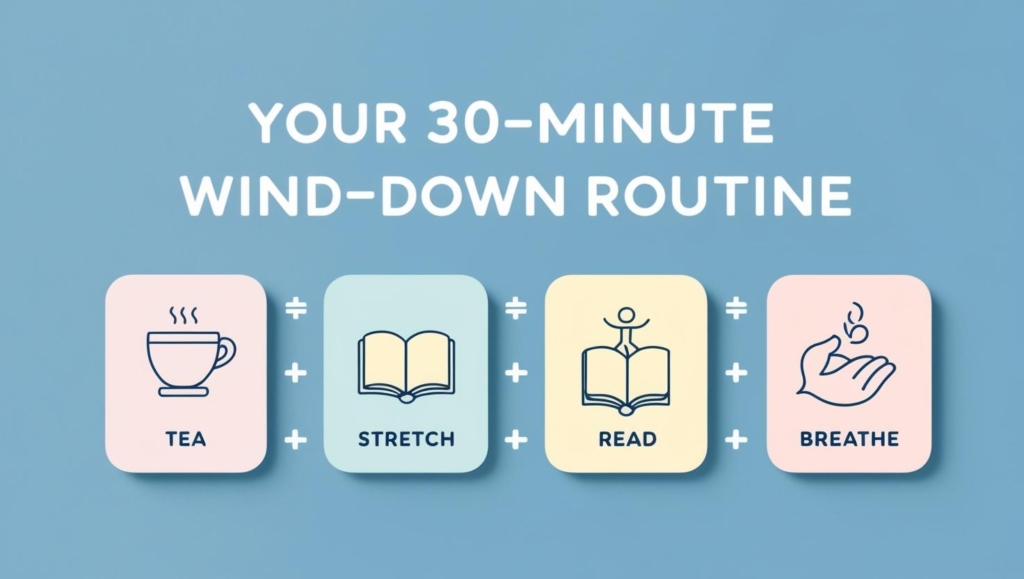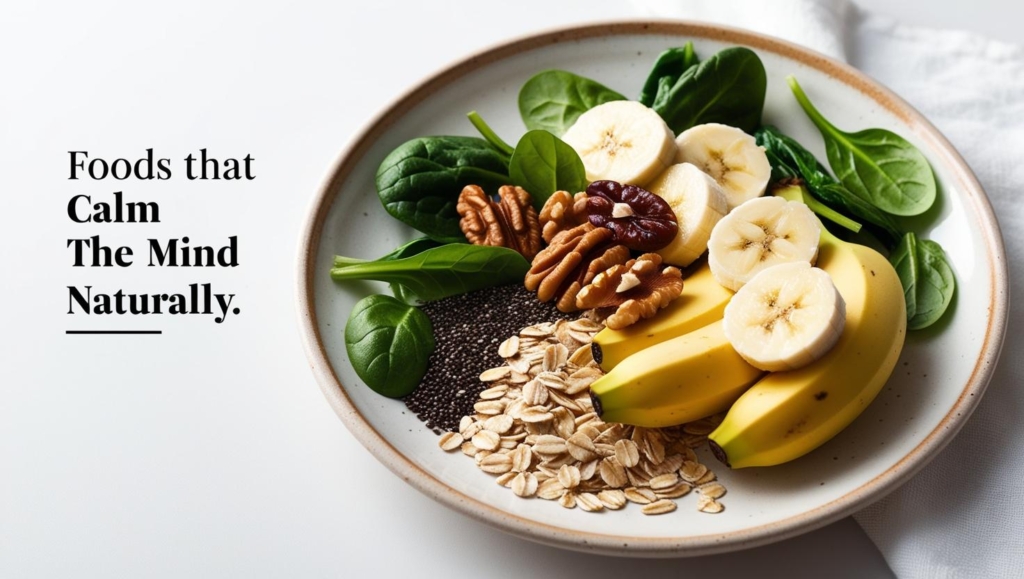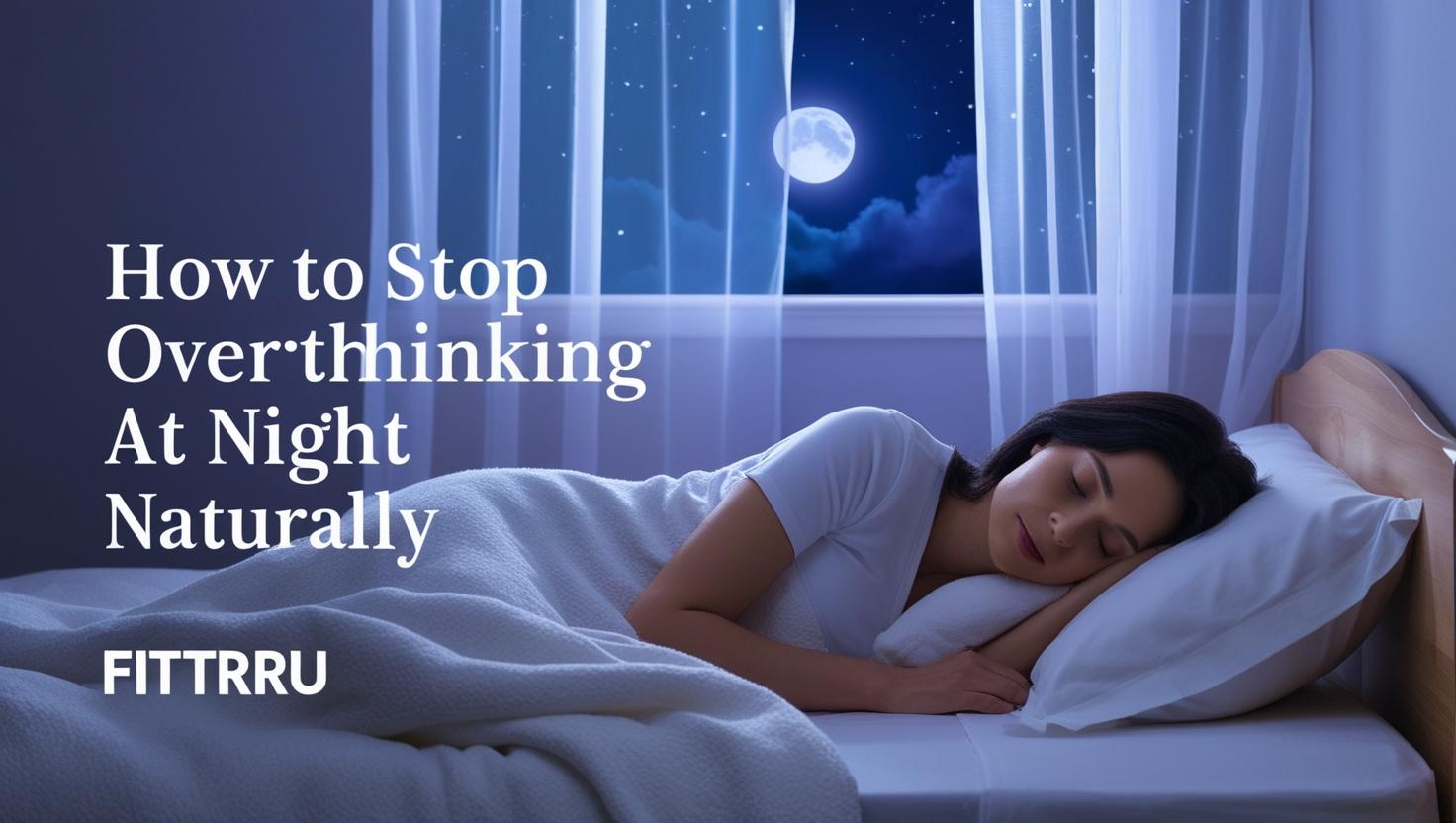🌙 You’re Exhausted, But Your Mind Won’t Sleep—Sound Familiar?
It’s 11:57 PM. You’re tucked in, the room is dark, the world is quiet… but your brain? Wide awake—rewinding conversations, worrying about tomorrow’s meeting, even rethinking what you said two years ago at a party.
If you’ve ever felt caught in this spiral, you’re not alone. Overthinking at night is a quiet epidemic—stealing rest, robbing joy, and amplifying anxiety. But here’s the uplifting part: with the right tools, you can break the cycle—and naturally.
This article blends real-world insight, psychological research, and trustworthy natural strategies to help you shut off the mental noise and fall asleep peacefully—night after night.
🤯 Why We Overthink More at Night
During the day, our minds are busy juggling tasks, emails, and conversations. But when the noise dies down, unresolved thoughts come rushing in. Stress, fear, unfinished to-do lists—they all queue up for attention.
According to sleep specialists, nighttime overthinking is often fueled by unprocessed emotions and poor sleep hygiene. It’s not a character flaw—it’s a pattern. And patterns can be changed.
🔁 Maya’s Story: The Real Cost of a Racing Mind
Maya, a 34-year-old school counselor, found herself trapped in an endless loop of what-ifs and mental replays. She wasn’t stressed all day—but the moment her head hit the pillow, her brain turned into a courtroom. “It’s like I could argue with myself for hours,” she said.
After months of trying supplements and sleep apps, she tried a more natural approach rooted in routine, mindfulness, and emotional awareness—and the difference was night and day. Literally.
Let’s explore the very methods that worked for Maya—and many others.
✅ How to Stop Overthinking at Night Naturally
📝 H5: 1. Create a “Worry Journal” Ritual

Before bed, set a 10-minute timer and write down everything that’s bothering you—no censoring. It’s not about solving problems—it’s about offloading your mind.
Evidence: Studies show expressive writing before sleep reduces rumination and promotes mental clarity (APA, 2017).
🌿 H5: 2. Use Calming Herbal Aids (Without Dependency)

A cup of chamomile, passionflower, or lemon balm tea can signal to your nervous system that it’s safe to relax. Essential oils like lavender or bergamot diffused in the room can also induce a calming response.
Note: Always check with a professional before adding herbs to your routine—especially if you’re pregnant or on medication.
🧘 H5: 3. Try the “5-4-3-2-1” Grounding Technique

Overthinking pulls you into your head. Grounding pulls you back into your body.
Right in bed, say:
- 5 things you see
- 4 things you feel
- 3 things you hear
- 2 things you smell
- 1 thing you taste
This brings your mind back to the present, breaking the cycle of worry.
📵 H5: 4. Cut Digital Stimulation Before Sleep

Blue light disrupts melatonin. But content—especially dramatic or social—can trigger emotional responses that keep your brain active. Set a “tech-off” alarm an hour before bed.
Try replacing screen time with fiction reading, coloring, or gentle stretching.
🔁 H5: 5. Embrace a Nightly Wind-Down Routine

Just like children need bedtime routines to feel safe, so do adults. Consistency helps your brain anticipate rest.
Example 30-minute routine:
- Herbal tea + worry journaling (10 min)
- Light stretching or yoga (5 min)
- Reading something light or uplifting (10 min)
- Deep breathing in bed (5 min)
🧠 Long-Term Support for Your Mental Health
🥦 H6: Nutrition Can Calm or Agitate the Mind

Low blood sugar, excess caffeine, and poor nutrition can trigger anxiety. Build a brain-friendly plate:
- Foods rich in magnesium (spinach, almonds)
- Omega-3s (chia seeds, walnuts, salmon)
- Tryptophan-rich foods (turkey, oats, bananas)
These support serotonin production and calm the nervous system (Harvard Health, 2016).
🏃 H6: Movement During the Day Supports Rest at Night
Even light daily movement—like walking, cycling, or swimming—helps regulate cortisol and improves sleep quality. Think of it as emotional drainage through physical motion.
💬 A Final Word: You’re Not Alone in This
Overthinking at night isn’t a failure of willpower. It’s often the product of a mind that cares deeply—too deeply, sometimes. But you can train your mind to rest, to trust, to let go.
The techniques above aren’t gimmicks. They’re gentle, proven shifts that invite peace instead of forcing it.
✅ What You Can Do Tonight
✨ Choose one method from above and try it tonight.
✨ Keep a 7-day tracker of your sleep and thoughts.
✨ Return to this article whenever your mind starts racing.
And most importantly, remember: the goal isn’t to silence your thoughts—it’s to make peace with them.
📣 Join the Fittrru Wellness Community
At Fittrru.com, we’re building a people-first wellness hub grounded in trust, honesty, and human stories. If this article helped you, share it with a friend who needs some peace tonight.
👉 Leave a comment below and tell us which tip you’ll try first—or share your personal ritual for letting go.
Let’s build better nights, together.
🔍 Sources & References
- American Psychological Association. (2017). Write your worries away: Study shows expressive writing helps you sleep. Retrieved from https://www.apa.org/news/press/releases/2017/12/write-worries-sleep
- Harvard Health Publishing. (2016). Nutritional strategies to ease anxiety. Retrieved from https://www.health.harvard.edu/blog/nutritional-strategies-to-ease-anxiety-201604139441
- Sleep Foundation. (2024). Mindfulness and sleep. Retrieved from https://www.sleepfoundation.org/how-sleep-works/mindfulness-and-sleep
- National Library of Medicine. (2014). Lavender and the nervous system. Retrieved from https://www.ncbi.nlm.nih.gov/pmc/articles/PMC3612440/
- Healthline. (2023). 5-4-3-2-1 grounding technique explained. Retrieved from https://www.healthline.com/health/grounding-techniques






